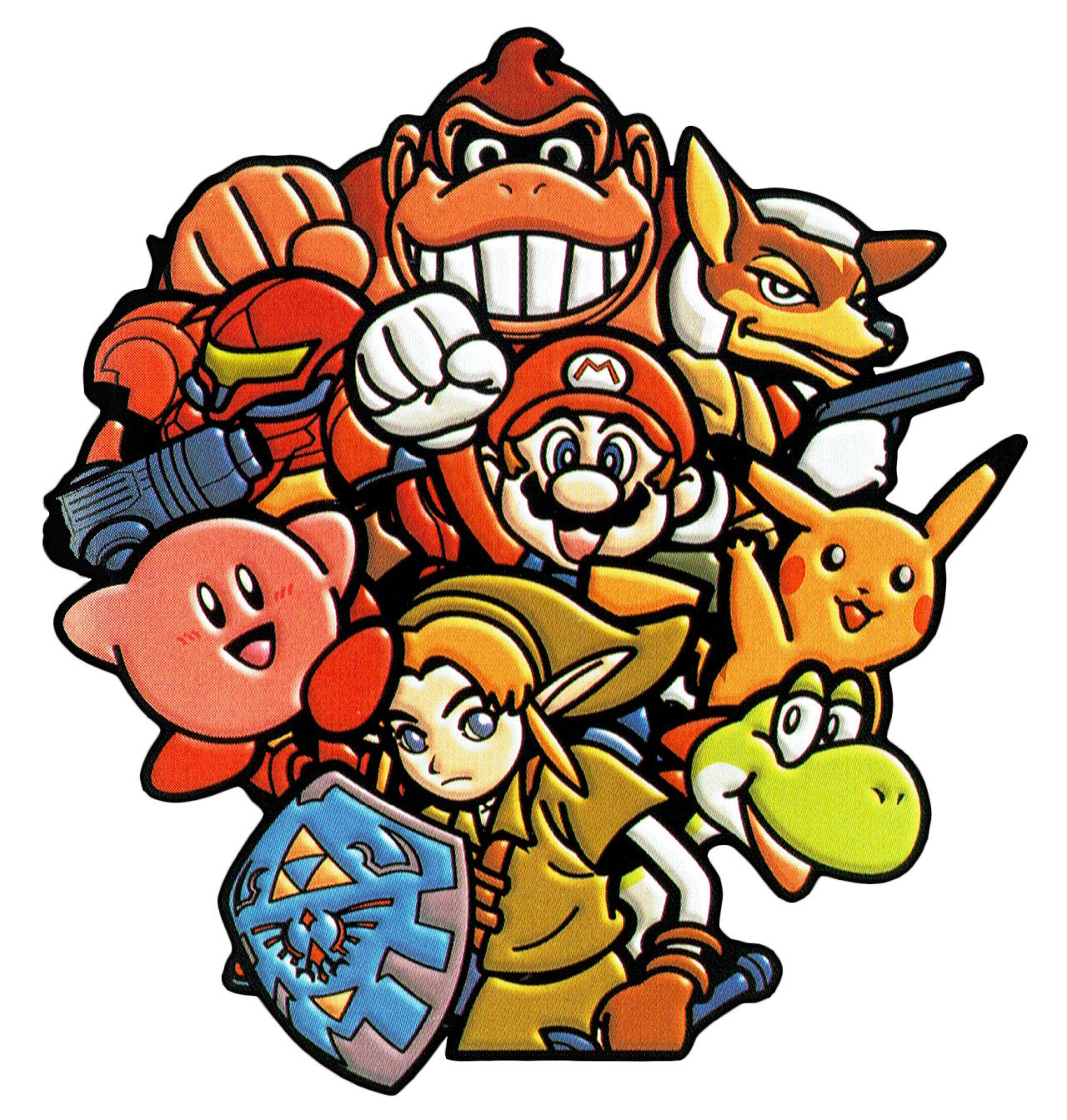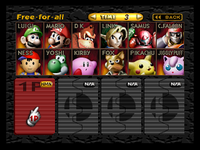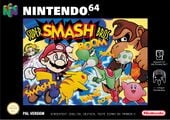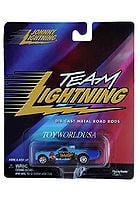Super Smash Bros.
| “ | Something's gone wrong in the happy-go-lucky world of Nintendo! | ” |
| —North American commercial | ||
- For the article about the series, see Super Smash Bros. (series). For the article about the universe, see Super Smash Bros. (universe).
| Super Smash Bros. | |
|---|---|
| Super Smash Bros. North American box | |
| Developer(s) | HAL Laboratory, Inc. |
| Publisher(s) | Nintendo |
| Designer(s) | Masahiro Sakurai |
| Released | Nintendo 64: Virtual Console: |
| Mode(s) | Single-player, multiplayer (2-4) |
| Ratings | ESRB: E PEGI: 7 OFLC: G8+ |
| Platform(s) | Nintendo 64 iQue Player Virtual Console |
| Media | 128 megabit cartridge Flash Card (China) |
Super Smash Bros., known in Japan as Nintendo All-Star! Dairantou Smash Brothers (ニンテンドウオールスター! 大乱闘スマッシュブラザーズ), often shortened to "SSB" or "SSB64", is the first game of the Super Smash Bros. series. It is the predecessor of Super Smash Bros. Melee, and the pre-predecessor to Super Smash Bros. Brawl, as well as the super-predecessor to the upcoming game, Super Smash Bros. 4. It is the only Super Smash Bros. game to be rated E; while the other two games are rated T, according to ESRB. Likewise, in PAL regions, Melee and Brawl are rated 12, while SSB is only rated 7. As a relatively low-budget game with an unusual concept, there were not originally any plans to export the game outside Japan. Only the game's unexpected popularity lead to its worldwide release.
The game was released in Japan on January 21, 1999, in North America on April 26, 1999, and in Europe on November 19, 1999. The game is playable on Nintendo 64 and the iQue Player and is available on the Wii's Virtual Console. The European Virtual Console version was released on June 12th 2009, and the American Virtual Console version was released on December 21, 2009.
Opening movie
Every time the opening movie plays, the two characters Master Hand picks who appear fighting on a mountain-top at the beginning of the movie varies. If certain secret characters have not been unlocked yet, they appear as silhouettes.
<youtube>CMlwNVqdhNc</youtube>
Characters
There are twelve playable characters in Super Smash Bros., eight of which are available from the start, and four of which are unlockable.
Starter characters
- File:MarioSymbol(preBrawl).png Mario
- File:DKSymbol(preBrawl).png Donkey Kong
- File:ZeldaSymbol.png Link
- File:MetroidSymbol(preBrawl).png Samus Aran
- File:YoshiSymbol(preBrawl).png Yoshi
- File:KirbySymbol.png Kirby
- File:StarFoxSymbol(preBrawl).png Fox McCloud
- File:PokemonSymbol(preBrawl).png Pikachu
Unlockable characters
- File:MarioSymbol(preBrawl).png Luigi
- File:FZeroSymbol.png Captain Falcon
- File:EarthboundSymbol.png Ness
- File:PokemonSymbol(preBrawl).png Jigglypuff
Non-playable characters
- File:DKSymbol(preBrawl).png Giant DK
- File:MarioSymbol(preBrawl).png Metal Mario
- File:SmashBrosSymbol.png Fighting Polygon Team
- File:SmashBrosSymbol.png Master Hand
Stages
Default stages
- File:MarioSymbol(preBrawl).png Peach's Castle
- File:DKSymbol(preBrawl).png Congo Jungle*
- File:ZeldaSymbol.png Hyrule Castle
- File:MetroidSymbol(preBrawl).png Planet Zebes
- File:YoshiSymbol(preBrawl).png Yoshi's Island*
- File:KirbySymbol.png Dream Land*
- File:StarFoxSymbol(preBrawl).png Sector Z
- File:PokemonSymbol(preBrawl).png Saffron City
*These stages reappear in Melee as Past Stages.
Unlockable stage
Adventure stages
Non-playable stages
Modes
1-Player
Multi-player
Tournament play
Unlike Melee, Super Smash Bros. never enjoyed a large professional competitive scene, but interest in Super Smash Bros. has been renewed in recent years with the popularity of Melee and Brawl. Players can play Super Smash Bros. online through Kaillera using the Project64k emulator. However, there have been more and more tournaments of Super Smash Bros. recently due to an influx of new players. Most Super Smash Bros. tournaments are paired up with Melee or long events and most (offline) SSB tournaments are located in California, Central Canada, or New Jersey.
The standard tournament rules differ little from that of Melee. The most common standard tournament rules are as follows:
- Generally best 2 out of 3 (using 3 out of 5 or sometimes 4 out of 7 for finals)
- Double Elimination
- 5 stock
- 10 minute time limit, if it is possible, most emulators don't have time limit
- Items are turned off
- Handicaps are off
- The first match is selected randomly excluding Yoshi's Island, Sector Z, Planet Zebes, and Mushroom Kingdom.
- Mushroom Kingdom, Sector Z, and Yoshi's Island are usually banned: Mushroom Kingdom for pipe spamming/edge camping, Yoshi's Island for cloud camping and projectile camping, and Sector Z for the size and the Arwing lasers. Planet Zebes is sometimes banned as well, for the acid.
- The loser of each match picks the stage for the next match excluding the illegal stages listed above.
- If Saffron City is selected on the first round and one of the players is using Ness, he or she may request a re-pick.
- However, if the Ness player wins the match, his/her opponent may counterpick Saffron City.
- The loser cannot choose a stage on which a previous match was played (known as "Dave's stupid rule"). Due to the low number of allowed stages in this game, this is often weakened to the loser cannot choose the stage on which the last match was played.
- For the first match, characters are chosen double-blind - at the same time, so that neither player knows their opponent's character beforehand.
- Players may re-pick characters after each match. However, the loser of each match gets to pick last (known as slob picks).
Online play
Although Super Smash Bros. does not feature online play, emulators have the ability to do so. Project64k and Mupen64k are the most used emulators of playing online.
Gallery
Commercials
<youtube>K783SDTBKmg</youtube> <youtube>wGx1_V8J_F0</youtube>
Trivia
- Early in development, Super Smash Bros. was called Dragon King: The Fighting Game, and didn't have any Nintendo characters at all.[1]
- The starting eight characters are placed in the order of when they first appeared in their respective titles on the character selection screen, starting with the oldest, Mario and Donkey Kong, and leading to the most recent, Pikachu.
- However, because of the placing of the unlockable characters on the sides of the character selection screen, Luigi gets listed first before Mario, despite the fact he debuted 2 years after Mario's debut. The same is true for Ness next to Yoshi, only it's a four-year difference.
- This is the only time Samus and Ness appeared on the Nintendo 64.
- When a character is chosen, they perform a brief animation in their player's display box below the character-select array. This is the only game in the series to have this feature.
- This is the only game to feature playable protagonists only. However, two characters had previously appeared as antagonists -- Donkey Kong in Donkey Kong and Donkey Kong 3 and Mario in Donkey Kong Jr.
- One piece of Super Smash Bros.-themed merchandise was a model car. This car was released by diecast toy car company Team Lightning, and was given the full name of Tom Daniel's "Trouble Maker" - Super Smash Bros. (1971 Chevrolet El Camino). These cars can still be purchased to this day via online stores such as eBay.
- In Japan, the game's Virtual Console release was one day before the series' tenth anniversary.
- Super Smash Bros. is the only game to use the phrase "Game Set" in matches in both English and Japanese versions. Melee and Brawl uses the phrase "Game" in the English version, both still uses "Game Set" in the Japanese version.
- This is the only game not to have a Smash Ball in the logo for the "O".
External links
| Super Smash Bros. series | |
|---|---|
| Super Smash Bros. · Super Smash Bros. Melee · Super Smash Bros. Brawl · Super Smash Bros. 4 (for Nintendo 3DS · for Wii U) · Super Smash Bros. Ultimate |





